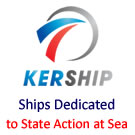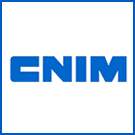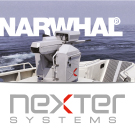| |
|||
| a | |||
Naval Forces News - Brazil |
|||
Brazilian
Navy statement: FAB Purchase Agreement of the Gripen NG will benefit
the Navy of Brazil |
|||
The Brazilian navy (Marinha do Brasil) issued a statement regarding
the aquisition of Gripen fighters: On 24 October, the Brazilian
Air Force (FAB) signed with the Swedish company SAAB the contract for
the purchase of 36 Gripen NG fighter aircraft. The first aircraft will
be delivered in 2019 and the last one in 2024. The investment of approximately
US $ 13 billion involves the training of Brazilian pilots and mechanics
in Sweden, logistical support and technology transfer to Brazilian industries. |
|||
 Sea Gripen launching from an aircraft carrier (Picture: Saab) |
|||
Embraer will take a leading role in the local
manufacture of aircraft, with the participation of other Brazilian companies,
providing a leap forward for our industry in general.
For the Navy of Brazil, this agreement represents the first step in a process which will give us, in the future, the possibility to have a plane to use as naval version of the aircraft in use by the FAB and national production, bringing with therefore, all benefits. This cooperation agreement that will allow the transfer of technology to the Brazilian industry is so important that the president of the SAAB, Hakan Buskhe said at a news conference: "We will transfer technology and the ability to design and build fighters." Source: Brazilian navy website |
|||
 A scale model the Brazilian Navy Sao Paulo aircraft carrier with several "Sea Gripens" on the deck was shown recently by SAAB during the LAAD 2013 defense exhibition in Brazil |
|||
Saab announced in 2013 that it is already developing
a naval version of JAS-39 Gripen, which aims to be a variant of its
newest product, the Gripen NG (Next Generation). This new version was
named Sea Gripen.
According to Saab, the requirements established by the Swedish Air Force (Flygvapnet) so that the Gripen had STOL capabilities (Short Takeoff and Landing), i.e. ability to take off and land from short stretches of road, caused the aircraft to present performance and flying qualities similar to those required for aircraft specifically designed to operate from an aircraft carrier. It was to verify in practice, the "natural vocation" of Gripen to become a naval fighter that I was invited to conduct a flight in Gripen D (two-seater) at the headquarters of Saab in Linköping, Sweden. |
|||
 A scale model the Brazilian Navy Sao Paulo aircraft carrier with several "Sea Gripens" on the deck was shown recently by SAAB during the LAAD 2013 defense exhibition in Brazil |
|||
The purpose of the flight was to verify that the
design requirements of the Gripen confer flight characteristics that
demonstrate their conversion potential into a naval version without
major and fundamental design changes. Even with very little flight time,
the flying qualities present in the aircraft quickly became clear to
me. The Saab team, led by Tony Ogilvy, already has identified and mapped
all the areas that need special attention and engineering that represent
the greatest challenges in Gripen NG "navalization". The focus
of the work focuses primarily on correct sizing and positioning of a
stop hook, as well as the necessary modifications so that the already
robust Gripen's undercarriage is able to withstand the high loads associated
with landings on flight deck of an aircraft carrier, since, unlike a
highway, it moves on all axes and prints a unique stress not only to
the landing gear but to the whole structure of the aircraft.
|
Brazilian Navy statement: FAB Purchase Agreement of the Gripen NG will benefit the Navy of Brazil
- Posted On










